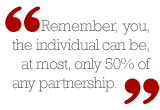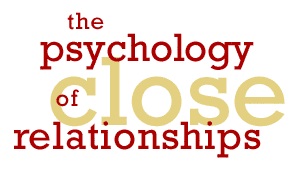|







|
You scored 0 .
This scale measures a few examples of your
own relationship needs and motives. Each experience involves some
degree of relating to others. Of a possible 50 point total on this
listing, the higher your score, the greater your admitted need for
a variety of social relationships. Do you value all items equally?
Or is there a pattern distinguishing your ratings of some items?
For example, popularity, admiration and fame, and even being remembered
after death (items 1, 2, 9 and 10) are valued in our culture, where
individual accomplishment and recognition are prized -- but they
do not guarantee closeness. In contrast, you might personally prefer
feeling close to just a few others in your life (items 4, 5 and
6 ) and feel content to be otherwise anonymous. And psychologists
confirm that it is real closeness to others -- not fame or celebrity
-- that gives us what we need to survive and thrive.
Alone Together On the Web
Shy people, lacking the skills or comfort level
to establish social relationships, run the risk of depriving themselves
of the rewards as well as the risks of closeness. But missing out
on a polite conversation with a store cashier is quite different
from missing an opportunity for close friendship or romance. The
consequences of missing out are different because the degrees of
closeness are different to begin with. Having a bad exchange with
your waiter, for example, can ruin your evening, but having a bad
love affair can ruin your life...at least for a while!
There is an irony in offering a Web seminar series on close relationships:
even if you have a friend or partner peering over your shoulder,
you usually operate your computer alone. Can you really learn about
intimacy by studying on your own? Isn't this a bit like going to
couples therapy by yourself?
Well, no -- for three reasons: First, as pointed out earlier, this
is not therapy. What you learn in this series is part of your lifelong
education, not part of a program of psychotherapy. Second, you'll
learn better if you pass along what you know. In other words, tell
your partner or friends what you are learning. Teach what you can,
and you'll learn even more.
Finally, it takes two to tango: Intimacy is not a state you achieve
and never leave; it's a process involving two people, one of whom
is you. The more you understand, the more you will be able to contribute
to your own relationships, not only in the form of information,
but as improved thinking, feeling and behavior. Thus, even if you
sit alone at the computer (which is probably more comfortable than
other seating arrangements), you are not "alone" in your relationship experience.
Relationship psychology is truly valuable, informative
and useful: it can make a positive difference. Relationship psychologists
do not have more "control" over their relationships -- remember, you
the individual can be, at most, only 50% of any partnership. But
relationship experts generally report that, as a result of what
they have learned, they feel less out-of-control in their relationships,
and have more abilities and choices in their interactions with those
they love.
Read, click, link, learn and discuss what you can, and train yourself
to function as even better friend, partner, spouse and colleague.
Welcome to The Psychology of Close Relationships!

|



